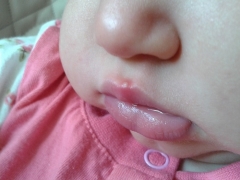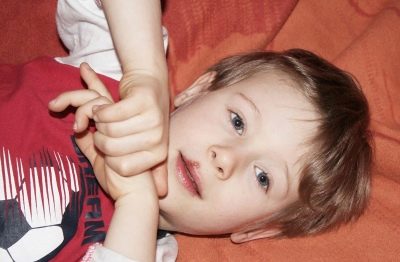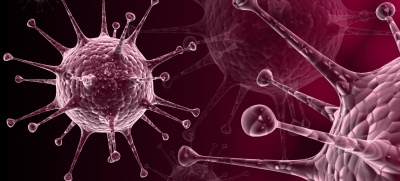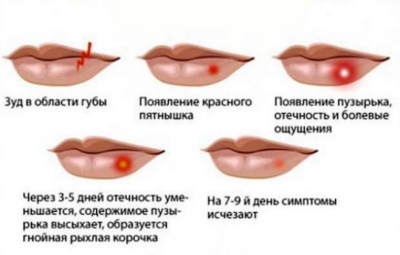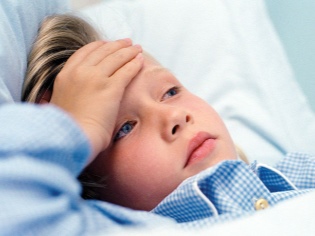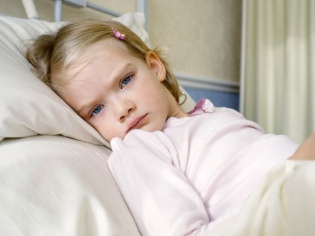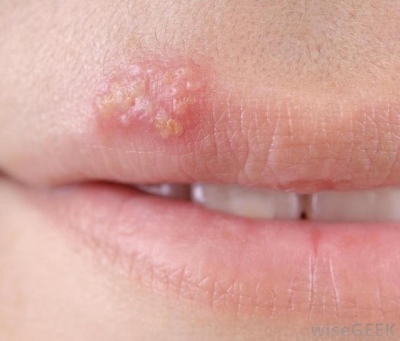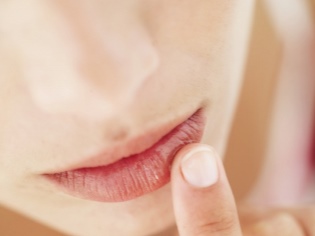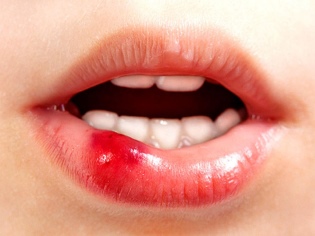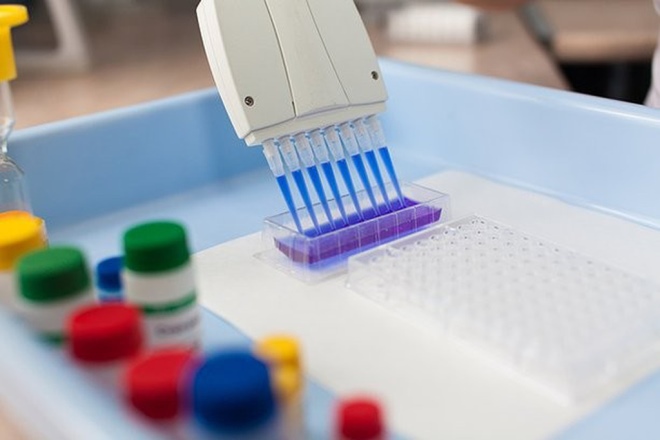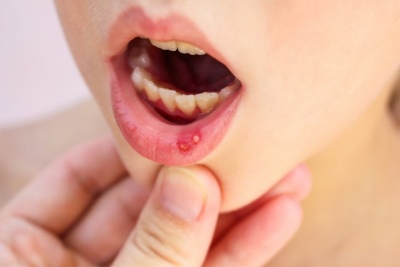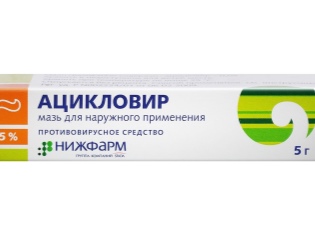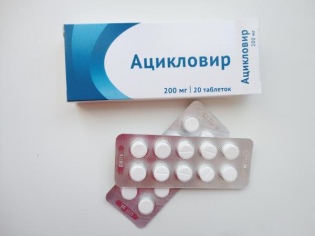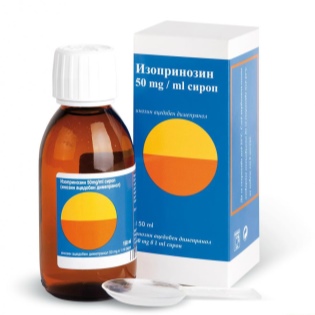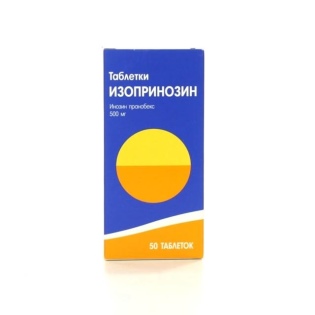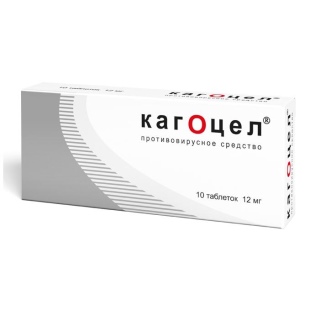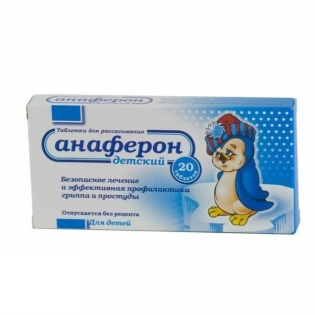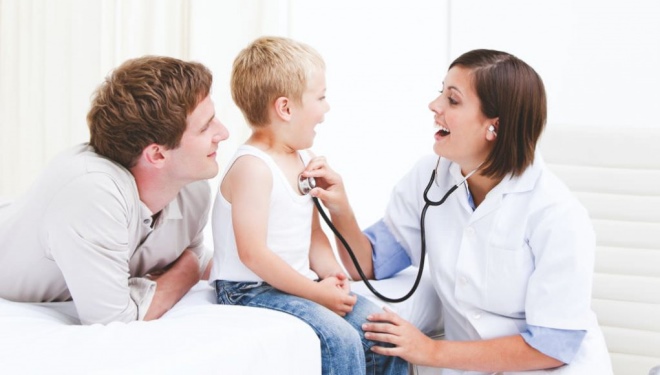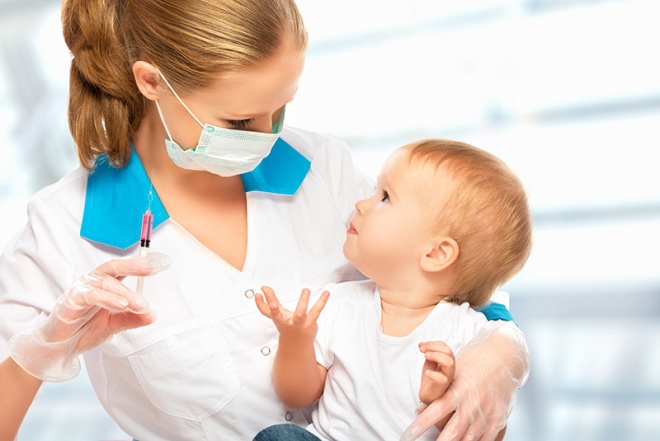Herpes on the baby’s lip
Not everyone knows what to do if a child has accumulated clusters of watery blistering lesions on the lip. Many parents unmistakably recognize herpes in this symptom, but they have no idea what his appearance can indicate, how to deal with it correctly.
What it is?
It is difficult to find a more common disease than herpes simplex - its carriers are 9 out of 10 people (of any nation, race, social status). Herpes on the lip is a herpes simplex virus of the first type, it is popularly called “cold on the lips”. Sometimes rashes are caused immediately by two pathogens - herpes viruses 1 and 2 types.
Like all other members of this virus family, they are lifelong. Once an infected person becomes a carrier of the virus for life. To these DNA-containing viruses, the body produces permanent immunity.
Viruses are transmitted from a sick person (or carrier) to a healthy one.
Most often, the child receives her first herpes (1-2 types) from mom and dad, who at least once in their lives had similar rashes on their lips. The alien agent penetrates through the mucous membranes and the skin, rather quickly "finds a common language" with the immune system. It may well exist silently in the body for years without delivering any problems to the child. Such vital activity of herpes virus is called latent, and it is recorded by more than 90% of people on the planet.
The acute (active or aggressive) stage of the virus’s existence refers to a condition in which it begins to infect cells, introduce their own DNA into them and completely “rearrange” them for themselves. This usually occurs when creating certain conditions under which the immune system begins to weaken, stops to restrain the activity of herpes viruses.
Everyone knows the situation: he caught a cold, caught the flu, was nervous, was very tired - a rash appeared on his lip. Hypothermia, violent allergic reactions, other diseases that weaken the natural protection of the child, allow the herpes virus to begin to show all its true aggressive essence.
In the case of primary infection with type 1 or type 2 of herpes, the acute stage usually begins after a couple of days, and this is exactly how an attempt at immunity to “put up with it” and develop a number of restraining antibodies. Then herpes becomes latent.
Normally, the virus makes itself felt by the onset of an aggressive (manifestational) stage 1–3 times a year, the frequency depends on the state of the child’s immunity. There are children who have rash on the lips appear more often, they need to be monitored by an infectious diseases specialist.
Symptoms
Primary infection always proceeds markedly. The incubation period, which lasts from 2 to 6 days, is replaced by the appearance of symptoms characteristic of a viral disease - the temperature rises, the lymph nodes that are closest to the site of the lesion may increase slightly (in our case, the submandibular, occipital and cervical).
In adults, type 2 herpes can be localized to the genitals, and then the inguinal lymph nodes increase. The child feels weakness, fatigue, and sometimes intoxication - if he feels sick, has a headache, there is a feeling of "body aches" in the body. On the lips appear more or less pronounced blistering rash, their appearance is preceded by a feeling of itch. The child may complain that the sponge "tingles" or it "itches." Acute stage lasts about a week.
In cases of activation of the virus from the latent state, the temperature may not be present, as well as unpleasant sensations in the muscles.Sometimes the only manifestation of "rebellious" herpes virus is the appearance of a rash, which looks like the formation of rounded or oval fragments of bubbles filled with a transparent or translucent liquid.
After a few days, the bubbles burst, start to dry out, the rash becomes covered with a crust, which gradually disappears, leaving a slight redness on the skin, which eventually disappears completely.
Danger
There is no great danger from a simple virus, however this statement is true only for a somatic healthy child with normal immunity. For babies with HIV infection, there are serious autoimmune ailments. Even herpes simplex virus can be a serious danger. Usually, the complications look like lesions of the virus of the nervous system, the skin of the extremities, nails, mucous membranes of the respiratory organs.
The greatest danger of simple herpes virus is for pregnant women, if the acute stage has occurred in the process of carrying a child. This can cause abnormal development of the fetus. Children who love to scoop drying fragments of lip rash have a risk of developing a secondary bacterial infection that they can enter through wounds.
Diagnostics
Few of the parents run to the doctor when a child has herpes on the child’s lip, but in vain, you don’t need to take into account possible complications that mainly concern the nervous system (even if such complications occur quite rarely).
Laboratory tests allow to establish the type of herpes infection, the duration of the disease. According to a blood test, specialists determine, in the acute or latent stage, herpes in the child’s body. In the first case, the antibody titer was quite large, with a chronic course, it will be stable, unchanged.
If a child has IgM HSV 1 or 2 in the baby’s blood, it means that a live and aggressive virus is circulating in the blood, an acute disease, and such a picture can persist throughout the acute stage (and even within three months after the illness retreats).
If the laboratory technician wrote “HSV-1 (or HSV-2) IgG in the form of the analysis result is positive,” this means that the child’s body has a virus, but it is sleeping, the acute stage has been left far behind. Such a laboratory picture persists throughout the rest of a person’s life; IgG shouldn’t scare mom and dad. These are just antibodies to herpesvirus, which restrain him, do not allow to manifest (unless, of course, the child is healthy, and his immunity is strong enough).
Treatment
None of the currently existing medications can destroy the herpes simplex virus. There is no vaccine, no means for prophylaxis or anything else. Therefore, herpesvirus of the first type does not need any specific treatment.
The biggest misconception of parents is trying to treat herpes on the lip with antibiotics. Who and when told them that penicillin will help get rid of the sores on the lips is unknown, but this error is very firmly entrenched in the heads of moms and dads, as well as grandparents. Viral infection with antibiotics is not treated. None and never. Therefore, there is no need to give the child a syrup with antibiotics, smear the rash "LevomekolyuOr do something similar.
Treatment of herpes with the use of antiherpetic drugs. However, it is not necessary for every child with a rash on the lip, but only for those who have a protracted course of the manifestational stage of the virus. In other words, a child who has a rash in 5-6 days does not need treatment at all. And the baby, whose rash persists for more than a week, and continues to “creep away,” should be treated with antiherpetic drugs that alleviate the symptoms of the infection.
The best drug of direct action in the treatment of herpes viruses - "Acyclovir». Children up to a year can be taken as ointments; after a year, the doctor may advise children to take a course of the drug in pills. There is another form of release - injection, but it is used in extremely severe conditions (for example, in the case of a very common herpes in a child with HIV), exclusively intravenously and only in the hospital, under the supervision of doctors.
It should be understood that it is impossible to cure herpes with "Acyclovir", since it is impossible to cope with it by definition, but the use of the drug (and doctors say it is justified) reduces the rate of exacerbations. This is true for children in whom herpes sores on the lips appear more often 3-5 times a year, in which a rash constantly accompanies almost any disease.
In some cases, the child is prescribed "Isoprinosine». In the instructions for use of the drug is not recommended for children under 3 years, but doctors sometimes in an individual dosage prescribe a tool and children younger. For three-year-olds, the dosage is calculated based on the formula - 50 mg of the drug per kilogram of baby weight. For children younger, it is usually reduced by half.
The course of treatment is 5-10 days, then after a break of a week, the course can be repeated to consolidate the result. Sometimes the drug is recommended after completion of the primary treatment - in maintenance dosages for at least 2 weeks.
Purpose "Kagocella"," Anaferona "with herpes on the lips - a waste of parental money, because these drugs do not affect herpes viruses in any way, and also on all other viruses (in any case, their clinical effectiveness has not been proven to date).
Treatment involves symptomatic therapy: at high temperatures (from 38.5), antipyretic drugs can be given. Children's "Paracetamol" or "Ibuprofen", or these drugs for adults (but in a reduced dosage) allow you to quickly and effectively reduce fever, preventing the onset of febrile seizures and dehydration.
Useful tips
With the appearance of herpes on the lips of the child, the parents should not have a violent reaction. However, the algorithm of reasonable actions is best followed strictly:
- If there is reason to believe that a child has very weak immunity, then you should definitely contact a pediatrician or an infectious diseases doctor., to find out what type of pathogen struck the child, what antibodies are in his blood, what is their number. This will soon resolve the issue of the need to use drugs.
- Herpes in the acute stage is contagious. If the child is infected for the first time, it is necessary to exclude visiting the kindergarten, school - until the symptoms disappear. If there are several children in the family, then the sick person should be given separate dishes, towels, and bed linen.
- It is impossible to treat herpes on the lips with folk methods.because the juice of onions and garlic (as well as earwax) only slightly dries the rash, but does not eliminate it. By themselves, any annoying lapping and gadgets only increase the intensity of unpleasant sensations.
- You can not remove the rash, squeeze it, remove the dried crust at the final stage.
- The best prevention of relapse is the strengthening of immunity. After the child's recovery, parents should do everything possible to ensure that their lifestyle does not include frequent colds, hypothermia and overheating, the occurrence of allergic reactions. Food should be balanced, rich in vitamins. The child should lead an active life - for a long time and often walk in the fresh air, become tempered, engage in any feasible outdoor sports.
Immunization, which is included in the national immunization schedule, should be given on time, in no case refusing vaccination. It allows you to protect your baby from dangerous viral ailments, which can extremely negatively affect the state of immunity in particular, and the entire state of health in general.
You can find out more about herpes in a child in the next video.
